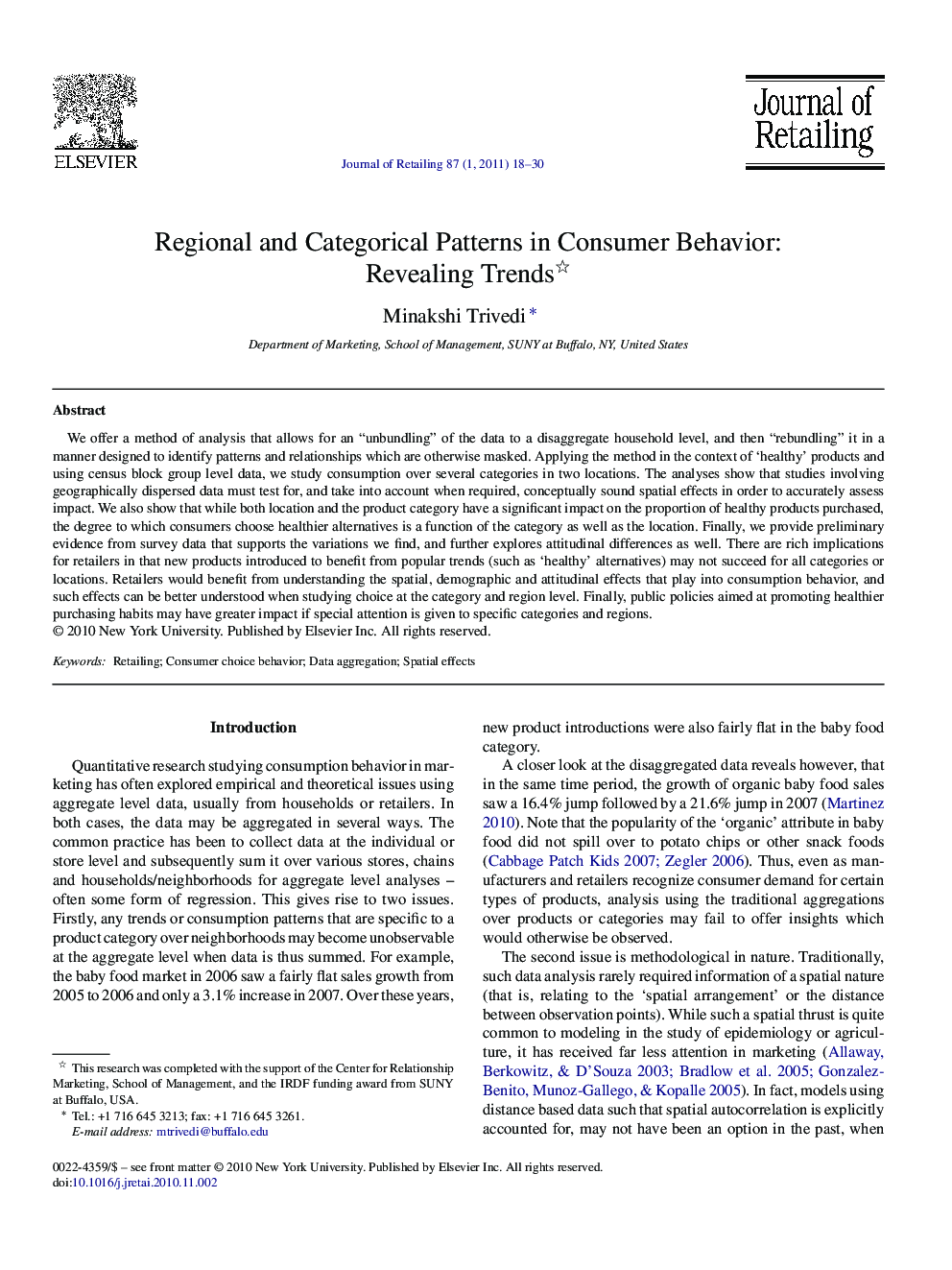| Article ID | Journal | Published Year | Pages | File Type |
|---|---|---|---|---|
| 886348 | Journal of Retailing | 2011 | 13 Pages |
We offer a method of analysis that allows for an “unbundling” of the data to a disaggregate household level, and then “rebundling” it in a manner designed to identify patterns and relationships which are otherwise masked. Applying the method in the context of ‘healthy’ products and using census block group level data, we study consumption over several categories in two locations. The analyses show that studies involving geographically dispersed data must test for, and take into account when required, conceptually sound spatial effects in order to accurately assess impact. We also show that while both location and the product category have a significant impact on the proportion of healthy products purchased, the degree to which consumers choose healthier alternatives is a function of the category as well as the location. Finally, we provide preliminary evidence from survey data that supports the variations we find, and further explores attitudinal differences as well. There are rich implications for retailers in that new products introduced to benefit from popular trends (such as ‘healthy’ alternatives) may not succeed for all categories or locations. Retailers would benefit from understanding the spatial, demographic and attitudinal effects that play into consumption behavior, and such effects can be better understood when studying choice at the category and region level. Finally, public policies aimed at promoting healthier purchasing habits may have greater impact if special attention is given to specific categories and regions.
Graphical abstractFigure optionsDownload full-size imageDownload as PowerPoint slideResearch highlights▶ Data from adjacent units must incorporate spatial effects to avoid bias. ▶ Healthiness in consumption trends are category and locale specific. ▶ Healthy consumption found more in suburban areas for good-for-you categories. ▶ Policy makers must use targeted messages for consumers to identify with them.
